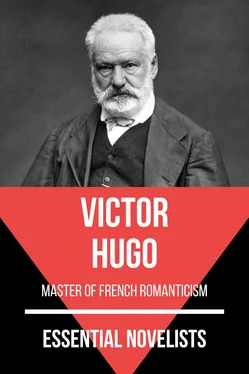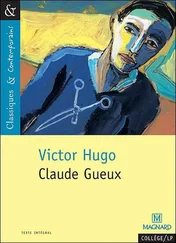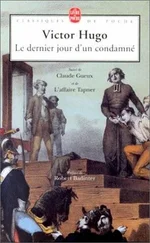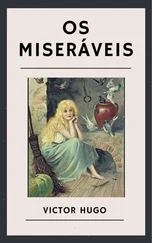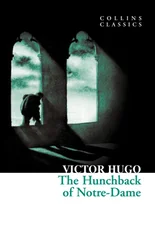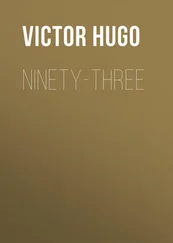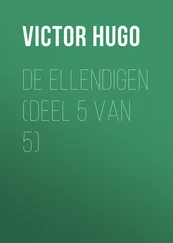Nevertheless, at nightfall, at the moment when the daylight is vanishing, especially in winter, at the hour when the twilight breeze tears from the elms their last russet leaves, when the darkness is deep and starless, or when the moon and the wind are making openings in the clouds and losing themselves in the shadows, this boulevard suddenly becomes frightful. The black lines sink inwards and are lost in the shades, like morsels of the infinite. The passer-by cannot refrain from recalling the innumerable traditions of the place which are connected with the gibbet. The solitude of this spot, where so many crimes have been committed, had something terrible about it. One almost had a presentiment of meeting with traps in that darkness; all the confused forms of the darkness seemed suspicious, and the long, hollow square, of which one caught a glimpse between each tree, seemed graves: by day it was ugly; in the evening melancholy; by night it was sinister.
In summer, at twilight, one saw, here and there, a few old women seated at the foot of the elm, on benches mouldy with rain. These good old women were fond of begging.
However, this quarter, which had a superannuated rather than an antique air, was tending even then to transformation. Even at that time any one who was desirous of seeing it had to make haste. Each day some detail of the whole effect was disappearing. For the last twenty years the station of the Orleans railway has stood beside the old faubourg and distracted it, as it does to-day. Wherever it is placed on the borders of a capital, a railway station is the death of a suburb and the birth of a city. It seems as though, around these great centres of the movements of a people, the earth, full of germs, trembled and yawned, to engulf the ancient dwellings of men and to allow new ones to spring forth, at the rattle of these powerful machines, at the breath of these monstrous horses of civilization which devour coal and vomit fire. The old houses crumble and new ones rise.
Since the Orleans railway has invaded the region of the Salpêtrière, the ancient, narrow streets which adjoin the moats Saint-Victor and the Jardin des Plantes tremble, as they are violently traversed three or four times each day by those currents of coach fiacres and omnibuses which, in a given time, crowd back the houses to the right and the left; for there are things which are odd when said that are rigorously exact; and just as it is true to say that in large cities the sun makes the southern fronts of houses to vegetate and grow, it is certain that the frequent passage of vehicles enlarges streets. The symptoms of a new life are evident. In this old provincial quarter, in the wildest nooks, the pavement shows itself, the sidewalks begin to crawl and to grow longer, even where there are as yet no pedestrians. One morning,—a memorable morning in July, 1845,—black pots of bitumen were seen smoking there; on that day it might be said that civilization had arrived in the Rue de l’Ourcine, and that Paris had entered the suburb of Saint-Marceau.
Chapter II
A Nest For Owl And A Warbler
––––––––

IT WAS IN FRONT OF this Gorbeau house that Jean Valjean halted. Like wild birds, he had chosen this desert place to construct his nest.
He fumbled in his waistcoat pocket, drew out a sort of a pass-key, opened the door, entered, closed it again carefully, and ascended the staircase, still carrying Cosette.
At the top of the stairs he drew from his pocket another key, with which he opened another door. The chamber which he entered, and which he closed again instantly, was a kind of moderately spacious attic, furnished with a mattress laid on the floor, a table, and several chairs; a stove in which a fire was burning, and whose embers were visible, stood in one corner. A lantern on the boulevard cast a vague light into this poor room. At the extreme end there was a dressing-room with a folding bed; Jean Valjean carried the child to this bed and laid her down there without waking her.
He struck a match and lighted a candle. All this was prepared beforehand on the table, and, as he had done on the previous evening, he began to scrutinize Cosette’s face with a gaze full of ecstasy, in which the expression of kindness and tenderness almost amounted to aberration. The little girl, with that tranquil confidence which belongs only to extreme strength and extreme weakness, had fallen asleep without knowing with whom she was, and continued to sleep without knowing where she was.
Jean Valjean bent down and kissed that child’s hand.
Nine months before he had kissed the hand of the mother, who had also just fallen asleep.
The same sad, piercing, religious sentiment filled his heart.
He knelt beside Cosette’s bed.
lt was broad daylight, and the child still slept. A wan ray of the December sun penetrated the window of the attic and lay upon the ceiling in long threads of light and shade. All at once a heavily laden carrier’s cart, which was passing along the boulevard, shook the frail bed, like a clap of thunder, and made it quiver from top to bottom.
“Yes, madame!” cried Cosette, waking with a start, “here I am! here I am!”
And she sprang out of bed, her eyes still half shut with the heaviness of sleep, extending her arms towards the corner of the wall.
“Ah! mon Dieu, my broom!” said she.
She opened her eyes wide now, and beheld the smiling countenance of Jean Valjean.
“Ah! so it is true!” said the child. “Good morning, Monsieur.”
Children accept joy and happiness instantly and familiarly, being themselves by nature joy and happiness.
Cosette caught sight of Catherine at the foot of her bed, and took possession of her, and, as she played, she put a hundred questions to Jean Valjean. Where was she? Was Paris very large? Was Madame Thénardier very far away? Was she to go back? etc., etc. All at once she exclaimed, “How pretty it is here!”
It was a frightful hole, but she felt free.
“Must I sweep?” she resumed at last.
“Play!” said Jean Valjean.
The day passed thus. Cosette, without troubling herself to understand anything, was inexpressibly happy with that doll and that kind man.
Chapter III
Two Misfortunes Make One Piece Of Good Fortune
––––––––
ON THE FOLLOWING MORNING, at daybreak, Jean Valjean was still by Cosette’s bedside; he watched there motionless, waiting for her to wake.
Some new thing had come into his soul.
Jean Valjean had never loved anything; for twenty-five years he had been alone in the world. He had never been father, lover, husband, friend. In the prison he had been vicious, gloomy, chaste, ignorant, and shy. The heart of that ex-convict was full of virginity. His sister and his sister’s children had left him only a vague and far-off memory which had finally almost completely vanished; he had made every effort to find them, and not having been able to find them, he had forgotten them. Human nature is made thus; the other tender emotions of his youth, if he had ever had any, had fallen into an abyss.
When he saw Cosette, when he had taken possession of her, carried her off, and delivered her, he felt his heart moved within him.
All the passion and affection within him awoke, and rushed towards that child. He approached the bed, where she lay sleeping, and trembled with joy. He suffered all the pangs of a mother, and he knew not what it meant; for that great and singular movement of a heart which begins to love is a very obscure and a very sweet thing.
Poor old man, with a perfectly new heart!
Only, as he was five and fifty, and Cosette eight years of age, all that might have been love in the whole course of his life flowed together into a sort of ineffable light.
Читать дальше
